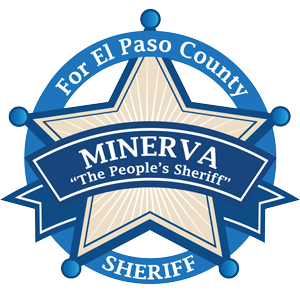Community Policing: Bridging the Gap Between Law Enforcement and Residents in El Paso
Introduction
Hello El Paso! Welcome back to the Minerva4Sheriff blog. Today, we’re exploring a vital aspect of law enforcement: community policing. As a candidate for Sheriff, Minerva Torres is dedicated to fostering stronger relationships between law enforcement and the community. Join us as we discuss how community policing can create a safer, more connected El Paso.
Understanding Community Policing
Community policing is a strategy that emphasizes building relationships and working collaboratively with residents to address safety concerns.
- Building Trust:
- Trust between law enforcement and the community is the foundation of effective policing. When residents trust their police, they are more likely to cooperate and report crimes.
- Collaboration:
- Community policing involves collaboration between officers and residents to identify and solve problems. This partnership improves public safety and community relations.
- Visibility and Engagement:
- Increased visibility of officers in neighborhoods and proactive engagement with residents fosters a sense of security and trust.
Key Initiatives
Minerva Torres for Sheriff proposes several initiatives to strengthen community policing in El Paso:
- Neighborhood Patrols:
- Increasing foot and bike patrols in neighborhoods enhances visibility and provides opportunities for positive interactions between officers and residents.
- Community Liaison Officers:
- Designating community liaison officers who serve as points of contact for residents ensures consistent communication and support.
- Regular Community Meetings:
- Hosting regular community meetings allows residents to voice their concerns, ask questions, and collaborate on solutions with law enforcement.
- Youth Engagement Programs:
- Developing programs that engage young people in positive activities and build relationships with officers helps prevent juvenile delinquency and fosters trust.
Measuring Success
To ensure the effectiveness of community policing initiatives, Minerva Torres for Sheriff advocates for regular assessments and community feedback.
- Performance Metrics:
- Establishing clear performance metrics, such as community satisfaction surveys and crime reduction rates, helps measure success.
- Continuous Feedback:
- Implementing feedback mechanisms allows residents to provide input on community policing initiatives, fostering continuous improvement.
- Community Advisory Councils:
- Creating advisory councils composed of community members ensures ongoing dialogue and collaboration with law enforcement.
Conclusion
Community policing is essential for building trust, enhancing public safety, and fostering stronger relationships between law enforcement and residents in El Paso. Minerva Torres for Sheriff is committed to implementing comprehensive community policing strategies that bridge the gap between law enforcement and the community. Together, we can create a safer, more connected El Paso.





Leave a Reply